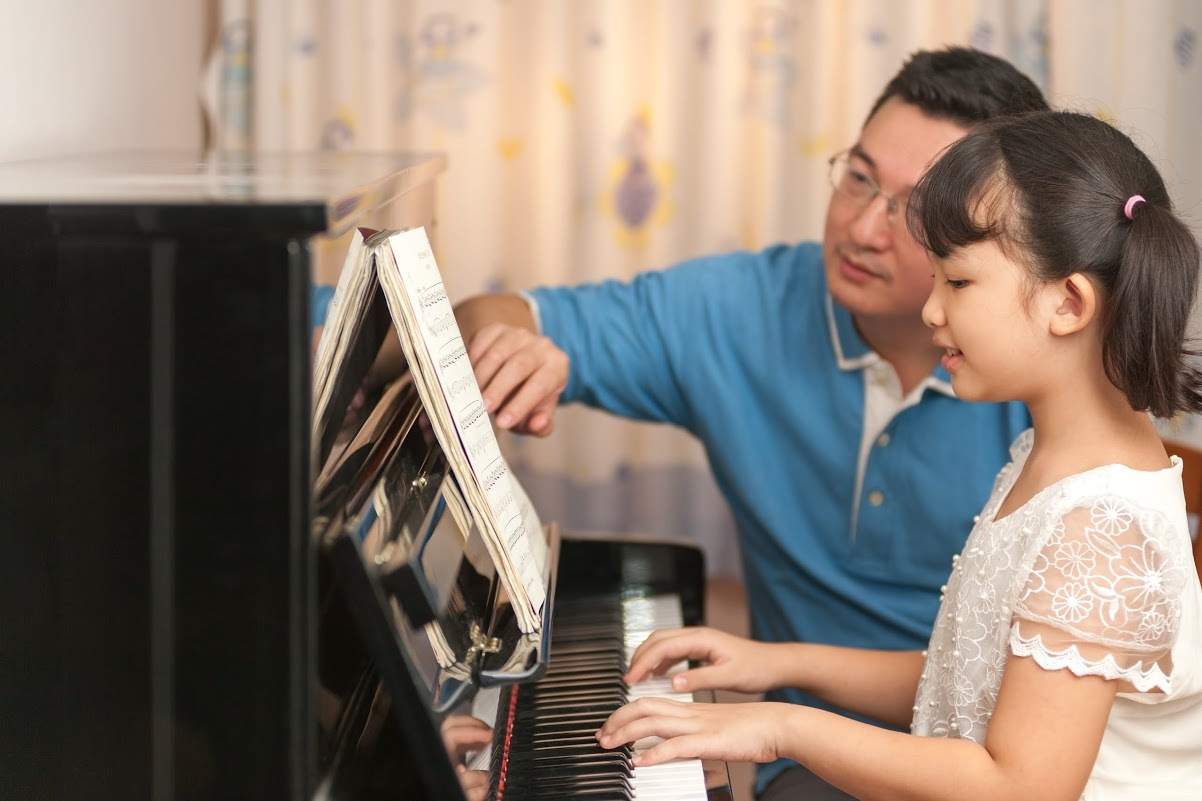Anyone enrolling their child into beginner music lessons should ask themselves a fundamental question: should I register my kids for group or private lessons? Which format is more productive, which one produces the best skill set, which is really best for my child?
Many parents feel private music lessons are superior to group lessons, but some of the world’s top experts say the reality is just the opposite; group music lessons can outperform private lessons by a significant margin. They also suggest that smart parents who understand the reasons why achieve the best results and have their adult kids thank them time and again for making the right choices.
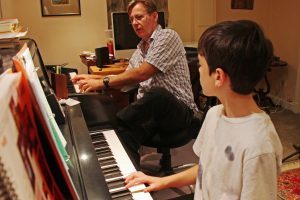
As the owner of a prominent school of music in North America, I have closely observed more than 20,000 beginner students (including my own five children) over the past thirty years. I have been fortunate enough to gain a unique perspective on this issue; what works, what is least effective and why. In this article as you read what the experts say, you might find the perspective in which you view music lessons will change forever.
Most music teachers recommend private lessons for beginner students. Is this good or bad advice?
If you talk to most piano instructors that were traditionally trained, you will almost always discover a heavy bias towards the private lesson format. Twenty years ago, there were very limited alternatives to private lessons with a few exceptions: Suzuki, Orff, Pace Music Method, Music for Young Children, Yamaha Music System and Merriam’s Keyfest Method.
It is safe to conclude that as most teachers were trained in the private lessons format, few can relate to a different approach until they’ve had first-hand experience teaching it. You can’t recommend what you don’t understand. Conversely, teachers who began lessons in an ensemble environment wouldn’t think of teaching music any other way. So what is the best format?
Few would argue that the music educators who have had the most influence on music education during the past one hundred years and whose methodologies and philosophies have withstood the test of time would be Carl Orff, Zoltan Kodaly, Robert Pace, Shinichi Suzuki, and Émile Jaques-Delcroze. Each of these 20th-century educators has influenced thousands of teachers, and millions and millions of young music makers. As well, their methodologies have become worldwide movements that have many philosophical threads in common:
- Music is a language which requires it to be taught in a similar way that we learned our native tongues
- Developing musicianship right from the beginning by incorporating key concepts like ear, rhythm, improvisation and harmony/theory creates well-rounded literate musicians with a much higher likelihood of continuing to enjoy music for the rest of their lives
- Delivering the content or curriculum in a professionally run group lessons or ensemble format so there is enjoyable social interaction and opportunities for the student to learn the fundamentals of musicianship through singing, movement and use of percussion instruments.
- Teaching children to learn the traditional way – rote learning and memorization of repertoire to pass an exam – is an insufficient way to develop true musicianship and create a sustainable long-term relationship with music.
All of the above principles are key parts of their philosophies and have incorporated endorsed group lessons for the beginning student as a critical part of their methodologies.
If the top experts agree that group learning is important, why do so many teachers only offer private lessons?
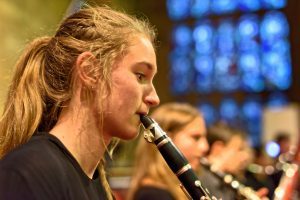
There are two main reasons for what seems to be a puzzling disconnect:
- Professional group programs are exponentially more difficult and complicated to run and manage.
- Most teachers who were taught in a private lessons format feel more comfortable teaching the way they learned themselves – even with clear evidence suggesting alternative methods can be more effective.
I’ll explain the complexity of running a professional group program later on in the article. In terms of the second reason group lessons are not as common, here are the conclusions based on my observations over the years.
Teacher Bias
I have witnessed numerous times in our own school teacher bias from those who learned the “traditional way” or in other words, private lessons. When we ask a newly hired faculty member at the Merriam School if they would choose a private lesson format or group lesson format to start their own child, many would select private lessons without hesitation. Bear in mind that these teachers are very well-schooled, competent and committed music educators.
In our case, the Merriam School receives hundreds of qualified applicants to our faculty each year from musicians across Canada and the US. Most have either a Bachelor of Music or a postgraduate degree from a recognized university or college and/or extensive professional experience; all have taken music lessons for at least ten plus years – and almost all were privately trained.
Each candidate must undergo a comprehensive screening process including numerous interviews, a practical performance and teaching audition, background reference checks and forty to sixty hours of extensive training before becoming certified to teach at the school. It is a costly process but it allows us to select the best and brightest so we can ensure a consistent and effective experience for our over 3,000 weekly students.
However, even with a strong predisposition towards the private format, within one year teaching the Keyfest group lessons program, even the most staunchly opinionated teachers inevitably change their mind on the effectiveness of group music lessons over private lessons. The conclusive evidence of that reality is that virtually all end up enrolling their own children into the program.
Moreover, after witnessing the results first-hand, most find it difficult to be motivated and engaged teaching a private lesson themselves after experiencing for themselves the positive ensemble-based music lessons dynamic and broad-based skill-build that happens during those first four years of Keyfest music lessons. So what is it about Keyfest or the ensemble or “group” format of music education that changes the opinion of even the toughest critics?
Most arguments for private lessons revolve around the one-on-one attention that the student receives. This, of course, is the reason that so many well-meaning and thoughtful parents opt for the traditional or private format to start their children in music lessons. It seems totally logical that with more personalized attention and the ability to pace the material to match the needs of their child, it would equate to better value, accelerated progression, a more solid skill-build and ultimately better results.
Add to this the majority of independent music teachers recommending the private format for beginning students along with many “commercial” schools offering a very poor quality group music lessons alternative; it makes sense that most would feel convinced about the efficacy of private over group lessons. However, the practical reality paints an entirely different picture.

Dr. Robert Pace (1929-2010), who was a professor of piano at the Juilliard School of Music in New York, then Head of Piano Studies and then chairman at the music department at Teachers College at Columbia University, was one of the first and most revered music educators to understand the power of the ensemble format for beginner students. A staunch supporter of the private lesson format at Julliard, Dr. Pace stumbled on the concept when two of his students were car-pooling together. He invited the second student to observe in the lesson and from that made some interesting discoveries.
As both were always together at his studio, he experimented with what he called “dyads” and found an interesting dynamic that wasn’t present in any private lessons. Dr. Pace went on to experiment in other formats including small groups (six to eight students) and found that this format created much better results for young students.
In a paper published in Keyboard Journal in 1978, it was obvious that his strong bias for the private format no longer existed for the first years of beginning students[1]. In fact, Dr. Pace addresses every objection I have ever come across regarding the perceived cons of group music lessons and eloquently addresses each objection. In the end, his conclusion was that for most children, there are no benefits to learning music in private lessons for a beginner during their formative years.
Since he was the leader of arguably the most prestigious music teacher’s college on the continent, his opinion matters. As well as Dr. Pace, Orff, Kodaly, Delcroze and Suzuki all shared a similar opinion on the power of group music lessons for the beginning student.
The complexity and difficulty of delivering a professional group program
It is important to clarify that there is no “one-size-fits-all” group lesson format. Each program has to be judged upon its own merits, and the quality varies dramatically from one program to another. However, for the purpose of this article, when I refer to a “group” program, I am talking only about professionally-run ensemble-based programs which incorporate an intelligently designed curriculum, trained professional teachers, competent classroom management and facilitation, and suitable filters (meaning age and skill set are appropriately matched). Each of the aforementioned experts are also assuming and referring to this type of group format.
In my opinion, the main reason alongside teacher bias, that private lessons are much more commonplace is due to the significantly higher level of complexity required to run an effective group program. The curriculum requirements, teacher training, facilities, higher costs for multiple instruments and streaming logistics required to run a professional group program are immense by comparison. By their own admission, any teacher at our school who has taught both formats will agree that facilitating a group music lessons requires more skill, preparation, training and experience than teaching a private lesson.

This complexity and difficulty can be extremely intimidating to traditionally trained teachers, and therefore can result in less motivation to run a group program, which then leads to less “buy-in” to the concept. I am convinced that many private teachers dissuade parents from starting in a program like this for the reasons I have just stated and not because of what is in the best interests of the student. After four years of a quality group experience, the benefits are enormous and the results speak for themselves.
These benefits include: stimulating social interaction, positive peer motivation, retention of content, enhanced engagement attention span and more robust musical skill set at an earlier age.
How group outperforms private for beginning students
1. Stimulating social interaction
That we live in a world with numerous ways for our children to socially interact and connect through new technologies and several options for academic, athletic and arts-related extracurricular activities is not in dispute. Children are used to learning, creating and playing in socially interactive environments and in some ways have come to expect it; socially dynamic settings that incorporate opportunities to connect with people make learning enjoyable, stimulating and engaging.
Given that reality, a well-run group music experience feels natural, pleasurable and relevant to most children. Even those parents who are concerned about shyness and integration with other kids usually find that when their children are placed in an ensemble format with a trained coach, they “come out of their shell” as the enjoyment of making music with friends takes over their shyness. Dr. Pace makes a strong case for groups creating an environment that helps an introverted or insecure person to overcome their shyness[2].
Most kids who start out with three to four years of group music lessons before switching to a private format, associate learning music with enjoyment and pleasure; an absolutely critical foundation to establish during the formative years. When the first experiences with music are positive, socially stimulating, and emotionally satisfying, the groundwork has been laid to eventually incorporate highly disciplined, rigorous training with specialty one-on-one coaches.
Often, students who start with private lessons find music to be an isolating and lonely experience and this feeling can stay with them throughout their lives: the demons of stage fright, shyness and fear of playing in front of friends or family are all too common for those who have learned to play exclusively in a private format throughout the developmental years.
When the time comes to immerse themselves in this type of high-level training and the student is free from any negative baggage associated with an over-disciplined early experience, the group format hasn’t robbed them of the joy of playing music with which many skilled musicians struggle throughout their lives. This is one of the most important reasons that I unhesitatingly recommend a this format for three or preferably four years for 95% of students before private coaching on its own is considered.
2. Positive peer motivation
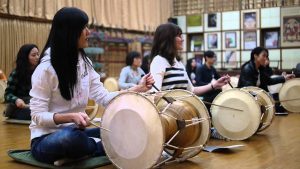
A well-organized group format provides an incentive for each student to practice at home in order to keep the integrity and flow of the group. Well-run group music lessons take advantage of opportunities to have students play pieces in an ensemble as well as solo format in front of their peers. This not only gives a reason to practice, but it also allows students to see other students’ strengths and weaknesses. This allows them to develop the skill of active listening and helps them to identify the same pros and cons in their own playing; both very positive motivators and learning tools.
3. Retention of content
I have observed over the years another benefit of group music lesson dynamics that cannot be overstated: higher retention of information. It is extremely difficult to keep a four- to eight-year-old engaged in private lessons for much longer than twenty to thirty minutes. Few children can sit still on a bench for more than twenty minutes with almost exclusively one-way information being directed at them from the teacher.
We have found that kids can easily handle a Keyfest group class for a full hour as the time is interspersed with physical activities (eg. Marching together to different rhythms), musical games (eg. Customized board games that teach and review rudiments) and ensemble playing as well as solo playing. The hour is rich with content and because the dynamic is constantly stimulating and incorporating different activities, the attention span is also dramatically increased.
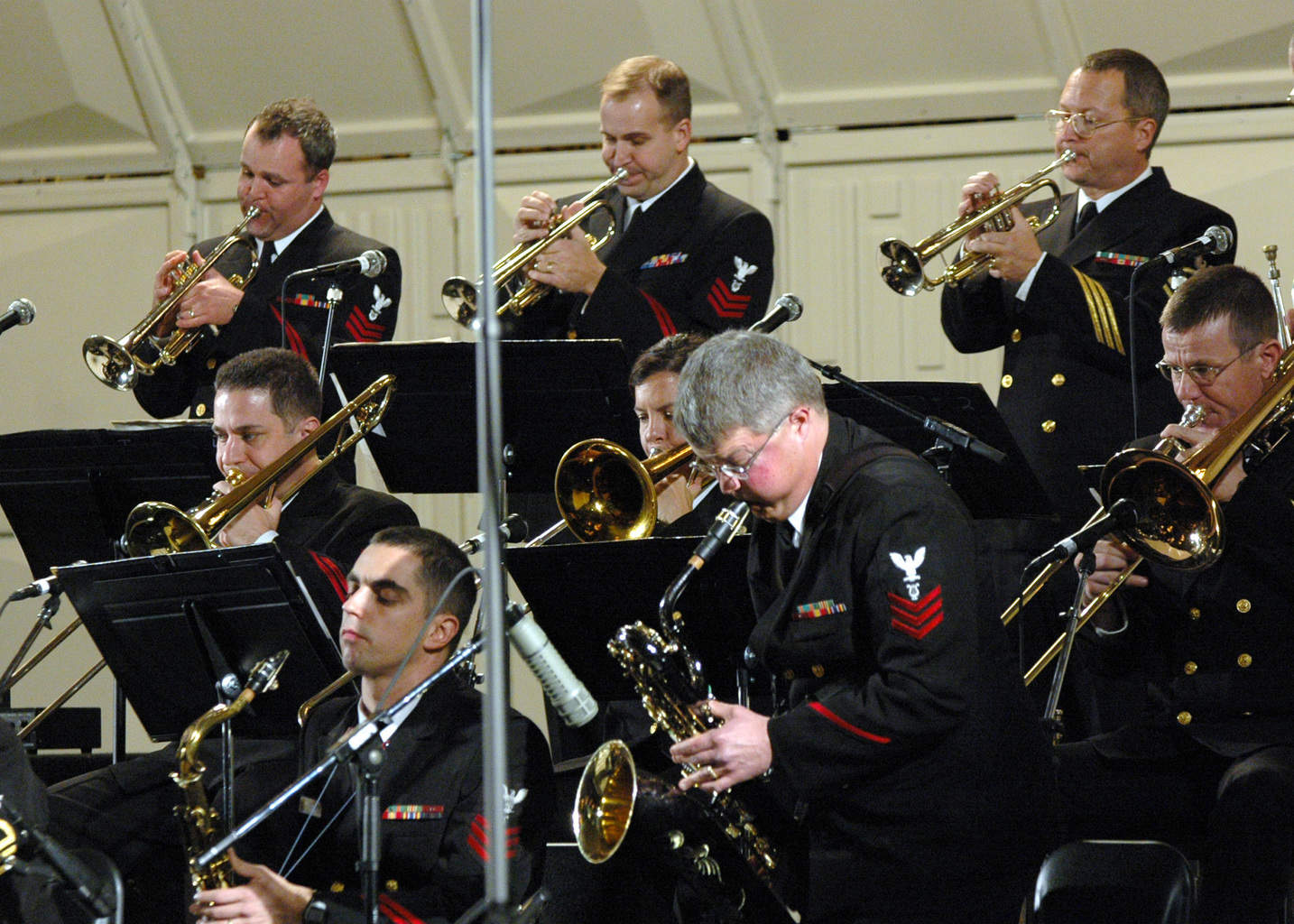
The information that we can deliver to young children in a group format over a period of four years is almost four times the amount of content we could deliver in the best private lessons with a top-notch coach.Subjects such as ear training, fundamentals of harmony, rhythmical styles, counting, form, dynamics, improvisation and the basics of composing are extremely difficult to teach in a private lesson during the formative years at the same level of engagement.
We have observed over and over again that students who have completed three to four years of Keyfest group lessons have triple or quadruple the skills of those who have studied during the same amount of time in private lessons with the very best coaches. Of our top graduates in the Artist Category each year, the overwhelming majority had three to four years of Keyfest group lessons as a foundation.
4. Enhanced engagement and attention span
The reason that Keyfest students can absorb so much more musical knowledge in a shorter period of time is a result of the student’s enhanced level of engagement and attention span. When we are learning even the most complex skills like language and math, and enjoying the experience while also having fun at the same time, our ability to process complex material dramatically increases.
Even the most animated teachers can’t possibly create in private lessons the dynamic of a vibrant, exciting and stimulating class experience. When most children learned their first language, they don’t have a sense of how difficult it was because they so desperately wanted to communicate and interact. When we try to replicate a need to learn the complex language of music by making it relevant (eg. Playing with others, interacting socially, utilizing technology, etc.), the rate of learning increases dramatically.
5. Increased skill set at an earlier age
This all equates to a significantly broader skill set that translates into deeper musicianship and a more entrenched understanding of musical principles. Because Keyfest students receive significantly more content over a three- to four-year period, enjoy a more stimulating and engaging dynamic, have less performance fear and enjoy the experience of making music with their friends, they are much more prepared to study from a private coach and receive substantially more value from the experience.
Those that learn in this order and move to private lessons when appropriate, and continue some kind of specialty group option at the same time, end up becoming the most accomplished students and literate musicians. They are also far more likely to keep playing and having music stay part of their entire lives in meaningful and enjoyable ways.
Although there are very few examples of a child not being able to fit into a group format (approximately 5%), all the rest benefit from the experience. There are numerous advantages to group lessons over private for the first years, but the most important benefit is that it develops better musicians and does it in a much faster, enjoyable and more humanistic way. Observing so many students over almost three decades has convinced me, along with thousands of parents, that this is the best way to teach music to young children, regardless of aptitude, intelligence or potential. As the proverbial saying goes, “the proof is in the pudding”.
Alan Merriam is the owner of the Merriam School of Music in Toronto
[1] Pace, Robert. “Piano Lesson: Private or Group.” Keyboard Journal 4, no. 2 (Fall 1978).[2] Ibid.
Featured Image: Image Credit
Music has no nationality. Music has no gender. Music has no religion. Music has no social class. Music has no language. Music is music.
— +Kyle+ (@tilwegrowoIder) May 31, 2016
The Power of Music: How Having a #Class#Song Can Promote Peace, Love and Understanding https://t.co/zyckPV2yIZpic.twitter.com/82s4UGX5A8
— WeAreTeachers (@WeAreTeachers) May 31, 2016
Related Articles:
Group Classes vs. Private Lessons
Parents often wonder if they should start their child with private lessons or group lessons at our studio. The answer could never be one or the other as no child learns the same or has the same personality. If you have a child who is about to begin or continue their musical journey it is important to take into consideration many factors including but not limited to age and maturity, previous experience and budget. Group classes are a great way to get your little musician introduced to lessons. Via Omaha School of Music and Dance
Private vs. Group Music Lessons for Kids
Every child has the potential to be a mini Mozart in the making. Still, deciding how much time and money to invest in your child’s musical future can be tricky.
Once you’ve both decided on an instrument, the next step is signing up for lessons. When searching for the right teacher, though, it’s important to also determine whether group classes or private lessons are best for your child. Via Active Kids
Pros and cons: group lessons versus private music lessons
Thinking of taking music lessons? That’s a great idea, but you have to choose the right format if you want to get the most out of them. You can go for group lessons or private lessons. For those thinking of group lessons, below is a detailed explanation of both the negative and positive sides to help you make an informed decision.


